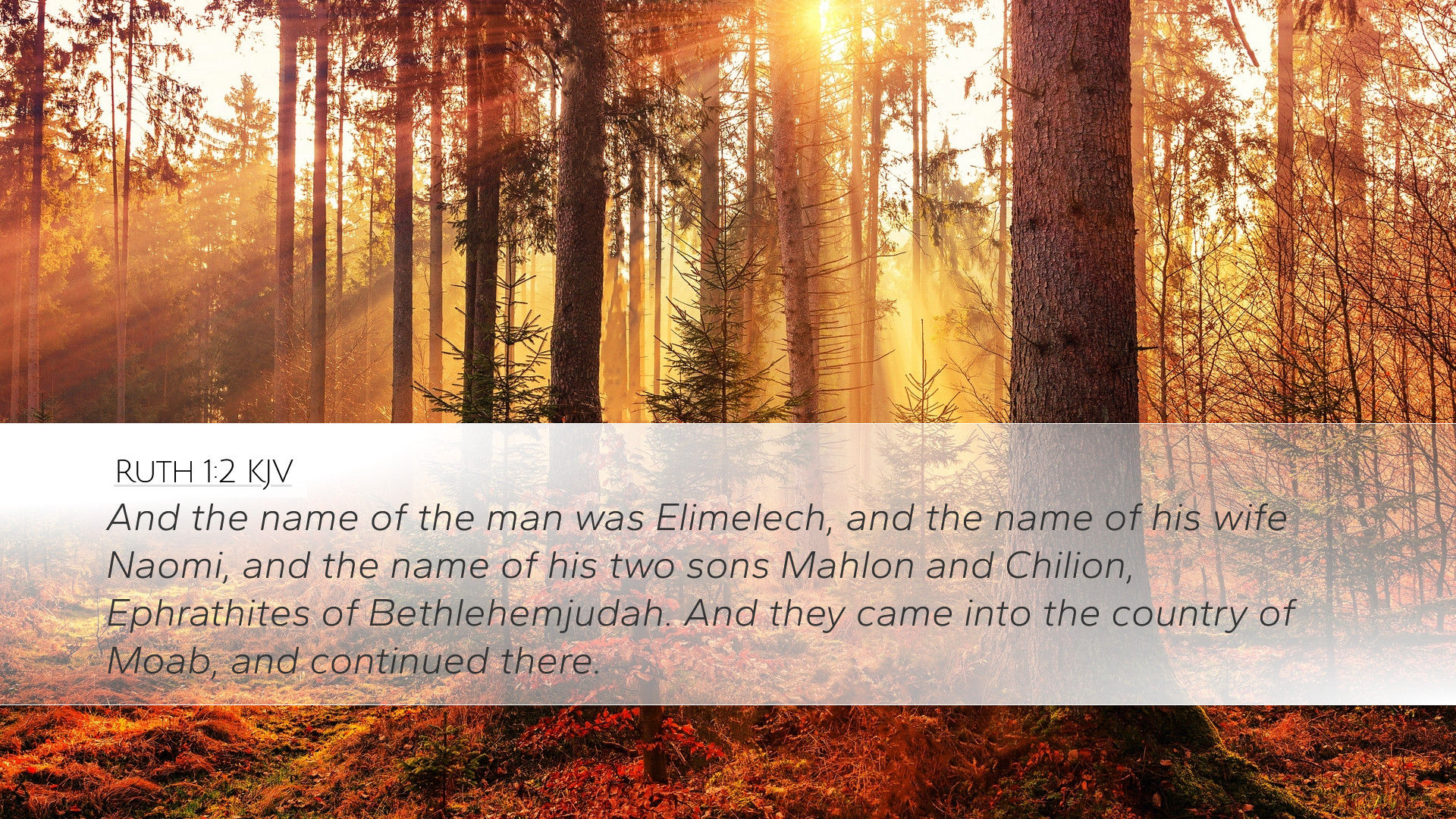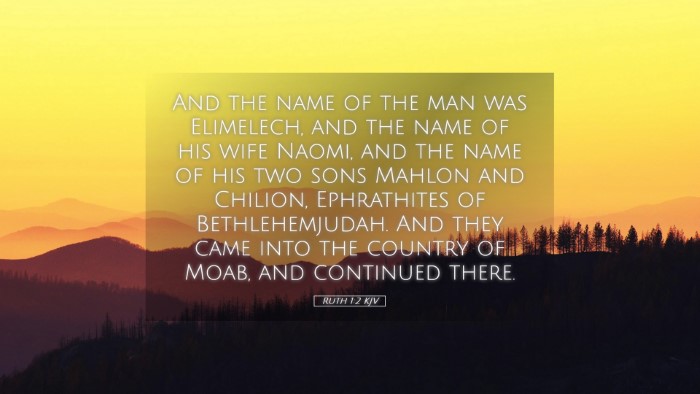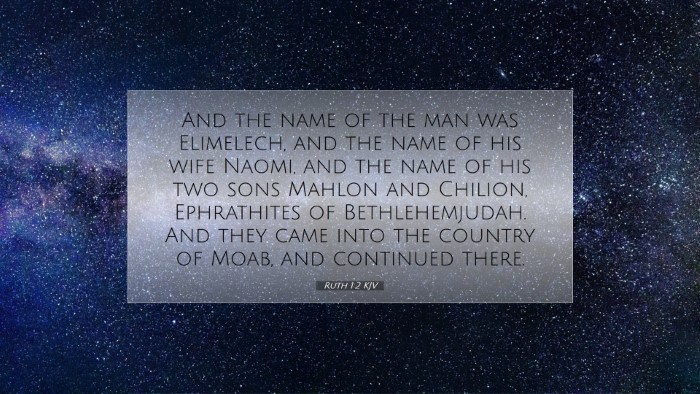Old Testament
Genesis Exodus Leviticus Numbers Deuteronomy Joshua Judges Ruth 1 Samuel 2 Samuel 1 Kings 2 Kings 1 Chronicles 2 Chronicles Ezra Nehemiah Esther Job Psalms Proverbs Ecclesiastes Song of Solomon Isaiah Jeremiah Lamentations Ezekiel Daniel Hosea Joel Amos Obadiah Jonah Micah Nahum Habakkuk Zephaniah Haggai Zechariah MalachiRuth 1:2
Ruth 1:2 KJV
And the name of the man was Elimelech, and the name of his wife Naomi, and the name of his two sons Mahlon and Chilion, Ephrathites of Bethlehemjudah. And they came into the country of Moab, and continued there.
Ruth 1:2 Bible Commentary
Commentary on Ruth 1:2
Verse Reference: Ruth 1:2
Text: "And the name of the man was Elimelech, and the name of his wife Naomi, and the name of his two sons Mahlon and Chilion, Ephrathites of BethlehemJudah. And they came into the country of Moab, and continued there."
Introduction
This poignant verse introduces us to the core family of the Book of Ruth against a backdrop of famine and societal unrest. It sets the stage for themes of loss, providence, and redemption that unfold in the narrative. Our exploration draws insights from various public domain commentaries to enhance our understanding of the text.
Character Analysis
- Elimelech: His name means "God is king," a reflection of his faith despite the dire circumstances that led him to take his family to Moab. This decision, however, raises questions about his trust in God during a time of crisis.
- Naomi: Her name means "pleasant," which is ironic considering the hardships she faces. Commentators note that her journey from Bethlehem to Moab and back is symbolic of her personal lament and eventual redemption.
- Mahlon and Chilion: Their names mean "sickness" and "consumption," respectively, foreshadowing their untimely deaths. This stark reality presents a rather melancholic view of the family's fate in Moab.
Geographical Context
The mention of Bethlehem is significant; it means "house of bread," and its initial association with famine highlights the irony of the situation. Commentaries often emphasize the contrast between Bethlehem, a place meant to fulfill the needs of its inhabitants, and the foreign land of Moab, which represents the trials of alienation from God's promised land.
Thematic Insights
- Theology of Famine: The famine that prompts Elimelech's flight is symbolic in biblical narrative, often understood as a sign of divine judgment. Matthew Henry suggests that such events serve to call God’s people back to dependency on Him.
- Faith in Crisis: Commentary by Albert Barnes notes that the family’s departure to Moab reflects both desperation and a lack of faith. The choice to leave the covenant community during hardship points to a significant theological discussion on faith and human reason in adversity.
- Foreign Lands and Idolatry: Moab, historically, symbolizes apostasy and rebellion against God. The sojourn there serves as a cautionary tale about the dangers of seeking refuge outside of God's design for His people.
Application for Today
Pastors and theologians can draw meaningful lessons from Ruth 1:2 that resonate with contemporary issues of faith in adversity:
- Trusting in God's Provision: Just as Elimelech and his family faced an uncertain future, today’s believers are often faced with choices that test their faith, especially in times of crisis.
- The Importance of Community: Naomi's eventual return highlights the significance of the community of faith. It is a reminder that isolation during trials can lead to spiritual peril.
- Redemption Narrative: The path from loss to redemption that Naomi experiences foreshadows the profound themes of grace that permeate the Bible. The conclusion of the Book of Ruth—where Naomi is graciously redeemed—is a powerful reminder of God's faithfulness.
Conclusion
The verse succinctly encapsulates the beginning of a narrative rich with theological implications. Commentators remind us to reflect on the characters' choices and the overarching narrative of redemption. As scholars delve into Ruth 1:2, the message resonates profoundly regarding faith, community, and the sovereignty of God in times of distress.


